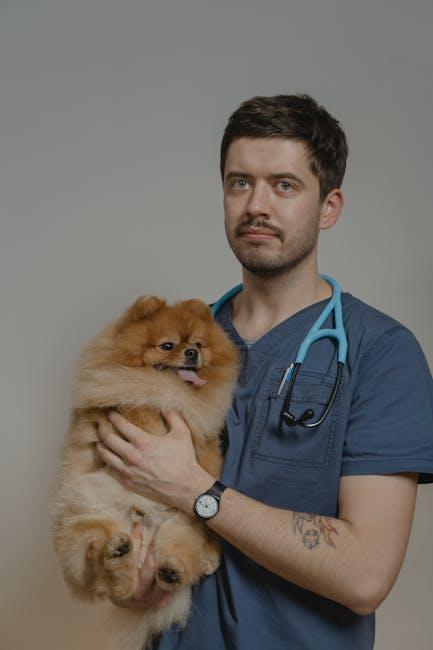Welcoming a puppy into your home is an exciting and heartwarming experience, filled with wagging tails, playful antics, and the promise of unconditional love. However, with this new furry family member comes the important responsibility of ensuring their health and well-being. For first-time puppy owners, navigating the world of pet care can seem daunting, but fear not! This guide is designed to provide you with essential tips and insights to help your puppy grow into a happy and healthy dog. From understanding vaccination schedules to mastering the art of proper nutrition, we will walk you through the key aspects of puppy health care, empowering you to give your new companion the best start in life. Let’s embark on this journey together, ensuring that your puppy’s early days are filled with love, care, and plenty of wagging tails.
Understanding Vaccinations and Preventive Treatments
Ensuring your puppy receives the right vaccinations and preventive treatments is crucial to safeguarding their health and wellbeing. Vaccinations protect your furry friend from serious diseases like parvovirus, distemper, and rabies. It’s important to follow a vaccination schedule recommended by your veterinarian, typically starting at six to eight weeks of age. Beyond vaccinations, preventive treatments for parasites like fleas, ticks, and worms are also essential. These parasites can cause significant health issues if left untreated.
- Core Vaccinations: These include vaccines for parvovirus, distemper, adenovirus, and rabies. They are vital for all puppies.
- Non-core Vaccinations: Depending on your puppy’s lifestyle and environment, your vet may recommend additional vaccines such as Bordetella or Lyme disease.
- Parasite Prevention: Regular treatments for fleas, ticks, and heartworms help keep your puppy healthy and comfortable.
Partnering with your veterinarian will ensure your puppy receives a tailored vaccination and preventive care plan. This collaboration will provide your pup with the best start in life, ensuring they grow into a happy and healthy adult dog.

Nourishing Your Puppy with a Balanced Diet
Ensuring your puppy receives a well-rounded diet is crucial for their growth and development. A balanced diet should include the right proportions of protein, fats, carbohydrates, vitamins, and minerals. Puppies have unique nutritional needs that differ from adult dogs, as they require extra calories and nutrients to support their rapid growth and high energy levels. Here are some essential components to consider:
- High-quality protein: Look for puppy food that lists meat as the first ingredient. Protein supports muscle development and tissue repair.
- Healthy fats: Essential for brain development and energy, fats should come from quality sources like fish oil or chicken fat.
- Complex carbohydrates: Provide sustained energy and should come from wholesome grains or vegetables.
- Vitamins and minerals: Critical for bone growth and immune system health, these should be balanced and can be found in fortified puppy foods.
It’s vital to feed your puppy food specifically formulated for their age and size. Consult with your veterinarian to tailor a diet plan that meets your puppy’s specific needs, ensuring they grow into a healthy, happy adult dog. Remember, proper nutrition is the foundation of lifelong health and well-being.

Creating a Safe and Stimulating Environment
Creating an environment that is both safe and stimulating for your new puppy is crucial for their development and well-being. Puppies are naturally curious and eager to explore, so it’s important to puppy-proof your home. Ensure that electrical cords are out of reach, as these can pose a significant risk if chewed. Consider using baby gates to restrict access to areas that might not be safe or contain valuable items that could be damaged.
To stimulate your puppy’s mind, introduce a variety of toys that cater to different senses and activities. Here are a few suggestions:
- Chew Toys: Help soothe teething discomfort and keep them occupied.
- Puzzle Toys: Challenge their problem-solving skills and keep them mentally active.
- Interactive Toys: Encourage play and bonding time with you, enhancing their social skills.
Additionally, regularly rotate the toys to maintain their interest and excitement. Remember, a well-stimulated puppy is a happy puppy, setting the foundation for a healthy and well-adjusted adult dog.

Building a Strong Bond Through Routine Care
Creating a daily routine is a fundamental part of nurturing a healthy relationship with your new puppy. Through consistent care, your puppy will learn to trust and rely on you, strengthening the bond you share. Here are some essential routine care practices to consider:
- Regular Feeding Schedule: Establish specific meal times to help regulate your puppy’s digestive system and reinforce positive behavior.
- Daily Exercise: Engage in playtime and walks to promote physical health and mental stimulation. This also provides an opportunity for socialization and training.
- Grooming Rituals: Incorporate brushing, bathing, and nail trimming into your routine to maintain your puppy’s hygiene and prevent health issues.
- Vet Visits: Schedule regular check-ups to ensure your puppy’s vaccinations and health screenings are up to date.
These practices not only support your puppy’s well-being but also instill a sense of security and trust, laying the groundwork for a lifelong connection.
















